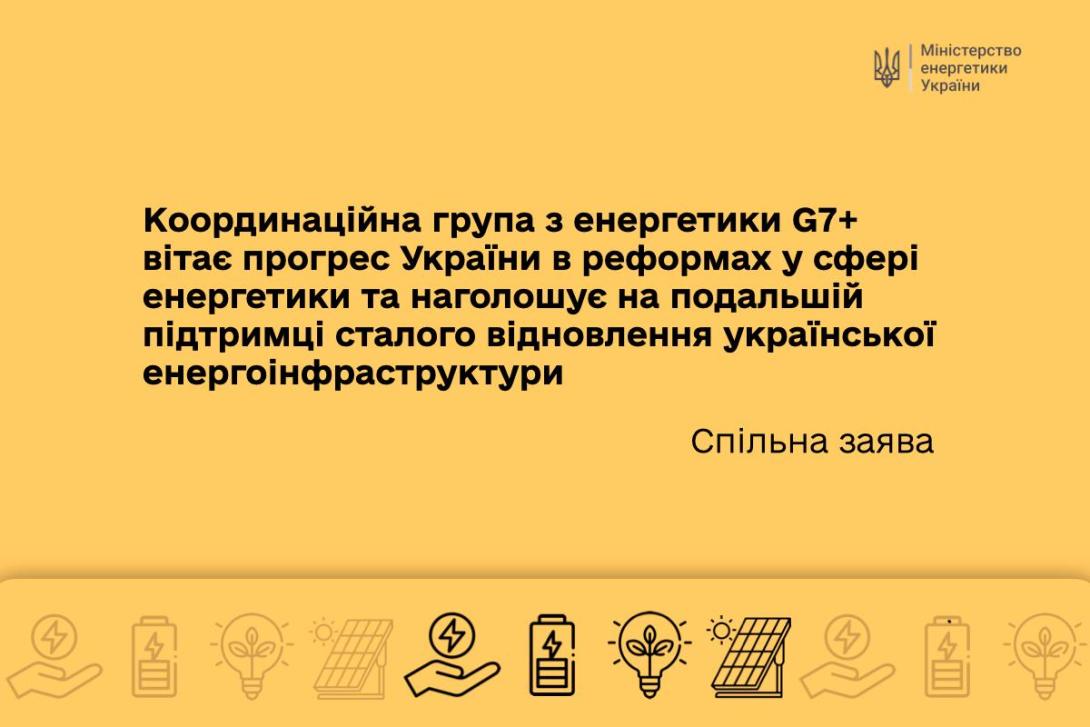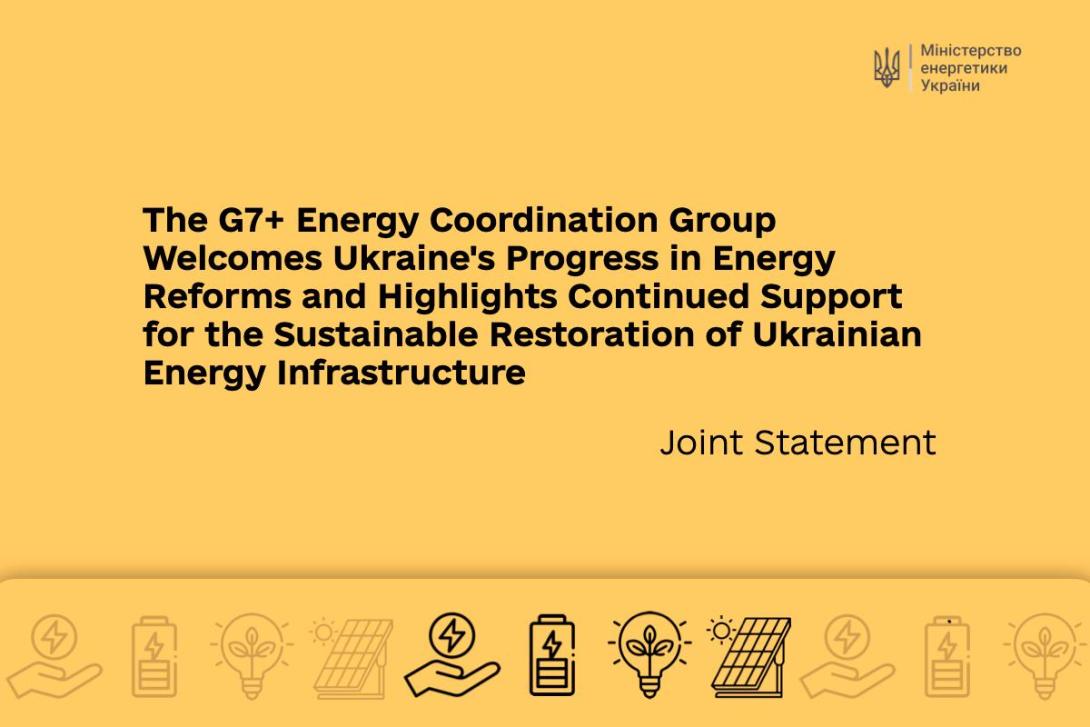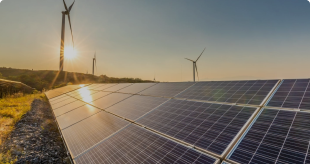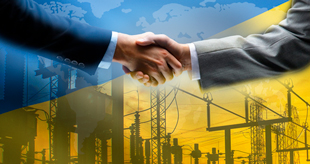Members of the G7+ Energy Coordination Group noted Ukraine’s progress in implementing reforms in the energy sector and reaffirmed their ongoing support and assistance in restoring Ukraine’s energy infrastructure with the focus on transitioning to a decentralized and sustainable energy system.
This is stated in the joint statement of the G7+ Energy Coordination Group members and the Government of Ukraine as part of the Clean Energy Partnership to promote the sustainable ecological recovery of Ukraine's energy system. The statement was made during an event jointly organized by the Ministry of Energy of Ukraine and the European Commission at the Ukrainian Pavilion platform at the United Nations Climate Change Conference COP29, held in Baku.
“We welcome Ukraine's progress in key energy sector reforms and the sustainable recovery of energy infrastructure facilities, which will contribute to a secure and sustainable future of clean energy worldwide,” the document reads.
In particular, the statement highlights progress in the reforms implemented by Ukraine to achieve clean energy transition goals, including increasing efforts in EU accession pathways and meeting obligations under the Energy Community Treaty, specifically:
• Adoption of the National Energy and Climate Plan (NECP) until 2030 and approval of the National Renewable Energy Action Plan for the same period as part of the NECP;
• Enhancing market-based support schemes for renewable energy sources (RES), including guarantees of origin for electricity from RES and the introduction of a net billing model for self-consumers;
• Launching the legislative process to transpose the Electricity Integration Package (EIP) into national primary legislation;
• Approval of the Strategy for Distributed Generation Development until 2035 and the Operational Action Plan for its implementation for 2024–2026.
Partner countries and international organizations of the G7+ Coordination Group also expressed their support for Ukraine in further key reforms as part of its EU accession and Energy Community pathways, including the implementation of Ukraine’s Action Plan and NECP. These include:
• Implementation of the EU Acquis in the energy sector, including the Electricity Integration Package, Renewable Energy Directive II (RED II) and its revised version (RED III), and the Hydrogen and Decarbonized Gas Market Package;
• Further liberalization of electricity and natural gas markets, gradual removal of public service obligation (PSO) requirements, and enhanced protection for vulnerable consumers;
• Strengthening and ensuring the independence of the energy regulator, the National Commission for State Regulation of Energy and Public Utilities (NEURC); ensuring compliance of gas transmission system operators with certified unbundling requirements;
• Applying sustainable corporate governance principles aligned with relevant OECD Guidelines in state-owned energy enterprises, including sustainable reporting standards;
• Developing strategies, frameworks, and legislation to enhance energy efficiency and promote decentralized renewable energy solutions in line with EU Acquis, ESG criteria, and climate risk assessment, particularly in the wind, solar, hydrogen, and sustainable biomass energy sectors;
• Developing and implementing a carbon pricing mechanism with a view to eventual integration into the EU Emissions Trading System no later than after EU accession;
• Encouraging capital mobilization and fostering favorable conditions for investments in energy projects in Ukraine, particularly in renewable energy and distributed generation.
Participants noted that the G7+ Energy Coordination Group has mobilized over USD 5 billion to support Ukraine's energy sector, including more than USD 1 billion allocated after the URC24 in June this year in response to intensified russian attacks.
“We urge countries to continue facilitating the recovery of Ukraine's energy system and its ecological transformation, both individually and collectively, by allocating the necessary funds for restoration projects and programs under the aegis of international organizations,” the statement says.
Additionally, members of the G7+ Energy Coordination Group commit to increasing support for the urgent restoration of Ukraine’s energy infrastructure, strengthening cross-border electricity flows with neighboring EU member states in compliance with the norms of the 4th Energy Package "Clean Energy for All Europeans," shared goals, and principles of the energy transition for achieving a climate-neutral economy as outlined in the National Energy and Climate Plan.
The statement also emphasizes the critical importance of enhancing the active and passive protection of existing and reconstructed Ukrainian energy infrastructure facilities, as the destruction of energy facilities increases the risks of social and environmental catastrophe in Ukraine.










